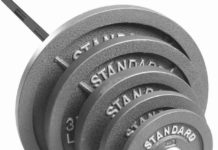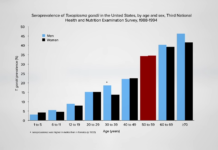Polycystic ovary syndrome (PCOS) is a hormonal disorder that affects women of reproductive age, and it is characterized by high levels of androgens, or male hormones. Women with PCOS are more likely to experience abdominal obesity due to lower insulin sensitivity. Reducing belly fat is an essential part of managing PCOS, and this guide will provide 10 tips to help people rock that PCOS belly.
Balancing Your Blood Sugar is Key
Managing your blood sugar levels is a key part of reducing PCOS belly fat. High blood sugar levels can lead to an increase in belly fat, and can cause a range of problems with your metabolism. Taking steps to control your blood sugar levels can help you reduce your PCOS belly fat and improve your overall health.
To keep your blood sugar levels steady, it is important to make sure that you eat small, frequent meals throughout the day, rather than eating three large meals. Eating small meals more frequently will help to avoid spikes in your blood sugar levels. Additionally, it is important to avoid foods that are high in refined sugars, such as candy, cookies, and cakes.
Snacking on healthy foods throughout the day can also help to manage your blood sugar levels. Nuts, seeds, fruits, and vegetables are all examples of healthy snacks that can help to stabilize your blood sugar. Eating regular meals that are high in protein and fiber can also help to balance your blood sugar levels.
Finally, it is important to limit the amount of alcohol that you consume, as this can also impact your blood sugar levels. Alcohol will not only affect your blood sugar levels, but can also disrupt your sleep and eventually lead to an increase in abdominal fat.
Tip 2: Bump up the Fiber
Fiber is essential for reducing PCOS belly fat. Eating a diet rich in fiber helps to keep blood sugar levels stable, reduce inflammation, and regulate hormones. Additionally, fiber helps to fill you up faster, meaning you end up consuming less food overall.
The best sources of fiber are fruits, vegetables, legumes, nuts, and seeds. Aim for 30-40 grams of fiber per day. This could look like adding an extra serving of vegetables to every meal, incorporating oatmeal into your morning routine, or snacking on nuts or seeds between meals.
Making small, simple changes to your diet to include more fiber will go a long way in managing PCOS belly fat.
Tip 3: Get Moving for PCOS Belly Fat Reduction
Regular exercise is a must for those looking to reduce their PCOS belly fat. Not only can physical activity help with maintaining a healthy weight, but it can also improve your insulin sensitivity and support the production of helpful hormones. Here are some examples of activities that are useful for managing PCOS belly fat and improving overall health:
- Cardiovascular exercise (running, biking, swimming)
- Strength training (weight lifting)
- HIIT (high-intensity interval training)
- Yoga and Pilates
It's important to find something you enjoy so you are more likely to stick with it. Aim for at least 30 minutes of exercise a day, five days a week. Before starting any new exercise program, it's best to check with your doctor first.
Tip 4: Repair Your Insulin Sensitivity
Having insulin sensitivity is really important for keeping PCOS belly fat in check. Insulin sensitivity refers to the body's ability to respond to insulin. When the body is insensitive to insulin, this can lead to an increase in belly fat and other complications of PCOS. Fortunately, there are a few ways to improve insulin sensitivity which can help reduce belly fat.
One of the best ways to improve insulin sensitivity is to lose weight. Even small reductions in body weight can have a big effect on insulin sensitivity. This means that even losing 5-10% of body weight can be beneficial. Along with losing weight, it is important to increase physical activity. Regular exercise has been shown to improve insulin sensitivity, so try to incorporate moderate-intensity activities into your daily routine. Finally, focus on healthy eating habits. Eating a balanced diet full of protein, fiber, healthy fats, and complex carbohydrates is key to increasing insulin sensitivity and reducing PCOS belly fat.
Remember, improving insulin sensitivity is essential to reducing PCOS belly fat. Be sure to make healthy lifestyle changes such as eating a balanced diet, exercising regularly, and maintaining a healthy weight. With these changes, you can enjoy a flatter stomach and improved PCOS symptoms.
Tip 5: Take Omega-3 Supplements
Consuming omega-3 fatty acids can be beneficial for reducing PCOS belly fat. Omega-3 fatty acids are essential fatty acids found in certain fish, such as salmon and herring, as well as certain plant sources including flaxseed and hemp seeds. Omega-3 fatty acids can help reduce inflammation and support healthy hormones, which makes it a great option for those with PCOS.
For optimal results, aim to consume at least two servings of fatty fish each week. This could include fresh, frozen, or canned varieties, but be sure to check the nutrition facts to make sure the fish does not contain unhealthy additives. If you don’t eat fish, consider an omega-3 supplement to get your daily dose.
When looking for an omega-3 supplement, look for products that contain both DHA (docosahexaenoic acid) and EPA (eicosapentaenoic acid). Both of these contribute to reducing inflammation and supporting healthy hormone production. Aim to take 500-1000 milligrams of omega-3s daily for best results.
Tips for Rocking That PCOS Belly: Tip 6, Get Enough Sleep
Getting enough quality sleep is an important part of managing PCOS belly fat. When you don’t get enough sleep, your hormones can become imbalanced and cause excessive weight gain in your midsection. Studies have shown that people with PCOS who get 7-8 hours of sleep a night can see a reduction in body fat around the abdomen.
Improving your sleep hygiene is essential for getting a good night’s rest and managing belly fat associated with PCOS. Here are some tips to help you get enough quality sleep:
- Go to bed and wake up at the same time every day.
- Limit caffeine and avoid drinking it after noon.
- Avoid food or drinks with sugar or artificial sweeteners before bedtime.
- Keep electronics out of the bedroom and turn off TV, phones and computer screens before bed.
- Create a comfortable sleeping environment with the right temperature, blackout curtains, and a soothing soundtrack.
- Relax and unwind before bed – try yoga, meditation, or breathing exercises.
Getting the right amount of quality sleep is one of the best ways to combat PCOS and reduce belly fat in the process. It's important to stick to a routine that works for you and practice good sleep hygiene. With these tips, you'll be one step closer to rocking that PCOS belly!
Practicing Stress-Relieving Techniques for PCOS and Belly Fat
PCOS can be a stressful condition to manage, and stress can play a major role in PCOS and its symptoms – such as belly fat. That’s why it’s important to establish healthy coping mechanisms that can help reduce stress levels and ultimately reduce the effects of PCOS on your body. Some of the most effective stress-relieving techniques include mindfulness and breath work.
Mindfulness is the practice of paying attention to the present moment, without concerns about the past or future. It involves blocking out distractions and focusing on the sensations of the present moment, like what you see, taste, touch, etc. This helps to reduce emotional distress and ease physical pain. To practice mindfulness, it’s helpful to find a comfortable position – such as sitting or lying down – and focus solely on your breath for 10-15 minutes.
Breath work is another great way to reduce physical and emotional stress. It is the practice of consciously controlling your breathing, which can help to lower tension in the body and clear the mind. Focused deep breathing can also be calming for those who struggle with anxiety. To practice breath work, it’s best to find a comfortable position in which to relax your body, and then begin to breathe deeply from the diaphragm for 10-20 minutes.
Both mindfulness and breath work are great tools to combat stress and can help immensely when dealing with PCOS and belly fat. Taking the time to practice these techniques can make all the difference in managing your symptoms and feeling better both physically and emotionally.
Herbal Remedies for PCOS Belly Fat
It is possible to find relief for PCOS belly fat with natural herbal remedies. Herbal treatments are known to help reduce inflammation, balance hormones, and improve metabolic health, all of which can help reduce belly fat associated with PCOS.
Here are the most effective herbs for reducing PCOS belly fat:
- Chasteberry: Chasteberry helps reduce testosterone levels and can improve fertility in those with PCOS. It is best taken as a whole fruit tincture, capsule, or tea.
- Licorice root: Licorice root is known to help regulate cortisol levels, which can lead to reduced belly fat. It is available in tea or as an extract.
- Ginger: Ginger helps reduce inflammation and is thought to have a beneficial effect on insulin levels. Fresh ginger should be grated and added to meals or enjoyed as a tea.
- Ginseng: Ginseng is known to balance hormones and boost energy levels. It is available as a supplement, in teas, or as a powder.
Herbal remedies can be a great way to help reduce PCOS belly fat, but it is important to consult with a naturopath or healthcare provider before beginning any treatments. Keep in mind that some herbs may interact with medications or other supplements, so it is best to discuss potential side effects with your healthcare provider before starting any new treatment.
Tip 9: Monitor Your Hormone Levels
Managing your hormone levels is an essential step in reducing PCOS belly fat and managing the overall effects of the condition. By monitoring your hormone levels, you can ensure that your hormones are balanced, which may help with reducing the symptoms of PCOS.
The best methods for monitoring hormone levels include blood tests that measure testosterone, sex hormone binding globulin (SHBG), luteinizing hormone (LH), follicle-stimulating hormone (FSH), and oestradiol. Additionally, you may need to take a saliva test to measure cortisol levels if you’ve been under increased stress or are exhibiting symptoms of adrenal fatigue.
It is important to discuss your hormone testing options with your doctor and receive guidance on when and how often to monitor your hormone levels. Regular testing can help track any progress you are making and provide insight into whether changes in your lifestyle such as diet, exercise, and stress management are having an impact on your symptoms.
Tip 10: Check Your Medications
Certain medications can have an effect on PCOS belly fat, either in a positive or negative way. It is important to check with a doctor or healthcare provider to ensure that any medications being taken are not hindering the progress of reducing PCOS belly fat. There are also medications which can help reduce the effects of PCOS belly fat.
For example, Metformin is a medication that has been found to help regulate insulin and blood sugar levels, which can ultimately assist in reducing PCOS belly fat. Other medications such as contraceptives may also help reduce symptoms associated with PCOS.
It is important to talk to your doctor or healthcare provider about what medications may be beneficial, as well as what medications should be avoided when working to reduce PCOS belly fat.
Conclusion: Manage Your PCOS Belly Fat for Optimal Health
You have now learned ten tips for reducing belly fat associated with PCOS. Balancing your blood sugar, increasing your fiber intake, exercising regularly, repairing insulin sensitivity, taking omega-3 supplements, getting enough sleep, practicing stress-relieving techniques, using herbal remedies, monitoring hormone levels and checking your medications can all help manage PCOS belly fat. Managing your PCOS belly fat is essential for optimal health, and following these ten tips can start you on the right track.
If you’re experiencing difficulty managing your PCOS belly fat or need additional support, there are many resources available online and in your local community that can help. Seeking advice from a qualified doctor or health care professional is also highly recommended.
By following these ten tips, you can learn to properly manage your PCOS belly fat and make strides towards improved health and wellbeing.
















